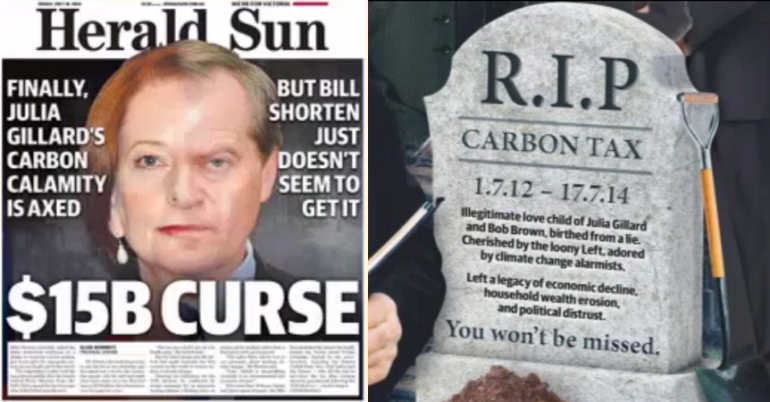Will nothing remain after carbon tax repeal?
With the repeal of the Clean Energy Act – a.k.a carbon tax – everyone is now left guessing what will take its place to contain Australia’s carbon emissions.
Some might believe that it’s nothing and that might be the case for a period of time (although the Renewable Energy Target will remain, it seems). The government’s Direct Action emissions reduction fund is not looked upon kindly by a majority of the Senate. And the Coalition has no serious 'plan B' if it were to be rejected. Also, Environment Minister Greg Hunt has acknowledged that it really needs to be legislated to function effectively.
But even with nothing, the threat of something down the track will still act to undermine investment confidence in energy-related equipment and infrastructure, as well as other carbon pollution intensive industry.
Even when Tony Abbott was riding high in the polls and a certain winner of the election, he was not brave enough to just say what many suspect he genuinely believes: climate change is a non-issue that doesn’t warrant any serious policy effort.
This suggests that the Liberal Party’s political intelligence suggests doing nothing is not viable for more than a few years.
As reported the day after repeal of the carbon tax (The carbon repeal hangover), the chief executives of both the Australian Industry Group and the Business Council of Australia have suggested that an emissions trading scheme of some kind is ultimately required, although they use the code word ‘market mechanism’.
It might seem impossible to imagine that such a scheme has any hope of getting up given the fervent hostility towards it within parts of the Coalition and the two most highly read newspapers in the country, Herald Sun and The Daily Telegraph (right, tombstone from carbon tax funeral scene).

Yet one needs to be very careful to recognise that the Coalition’s views on this topic are not uniform. An interesting story has emerged in a new biography of Joe Hockey about the 2009 Liberal leadership tussle, in which Abbott was the victor by just a single vote.
The book explains that Joe Hockey had always been a supporter of an ETS, just like several of his colleagues. According to the book, Hockey would have been assured the leadership if he had simply dumped his support for an ETS. Indeed, Abbott would have withdrawn as a candidate in favour of Hockey.
Yet Hockey refused to dump his own personal support for an ETS.
Instead he proposed allowing Liberal parliamentarians to vote as they wished on the ETS. If Malcolm Turnbull had not stood for the leadership then one suspects Hockey would have beaten Abbott, and an ETS would have been legislated with support from a number of Liberal Party senators.
This serves to illustrate that investors in energy-related infrastructure with lives of several decades simply can’t afford to assume that a ‘do nothing’ approach will remain.
Also, one needs to keep in mind that those industries that have been most threatened by a carbon price are slowly dying – but from causes other than the carbon tax (in particular the high Australian dollar and skyrocketing gas prices).
Aluminium smelting, cement, steel, and oil refining have all been subject to major closures in the last few years (by the way, energy is not a particularly major input for car manufacturing). This reduces their political influence as they employ a smaller and smaller share of the workforce and represent a smaller proportion of economic output.
On top of this, you have the other side of politics remaining steadfast in their support for an ETS. Bill Shorten’s speech to parliament on the repeal bill suggested his party almost see their political scars on this issue as a badge of honour. Reflecting on the failure of the first-term Rudd/Gillard government to take advantage of bipartisan support for an ETS in 2008, and then abandoning the policy in 2010, Shorten said:
... from that time, that hope of developing a national commitment for action has been frittered away… For our part, we walked away from calling an election which the nation was entitled to have … We were right to support an emissions trading scheme.
Given all these factors, business is left with the prospect that an ETS could well re-emerge. The question is, then, in what form and 'how could it be shaped in my business’ favour?'
















